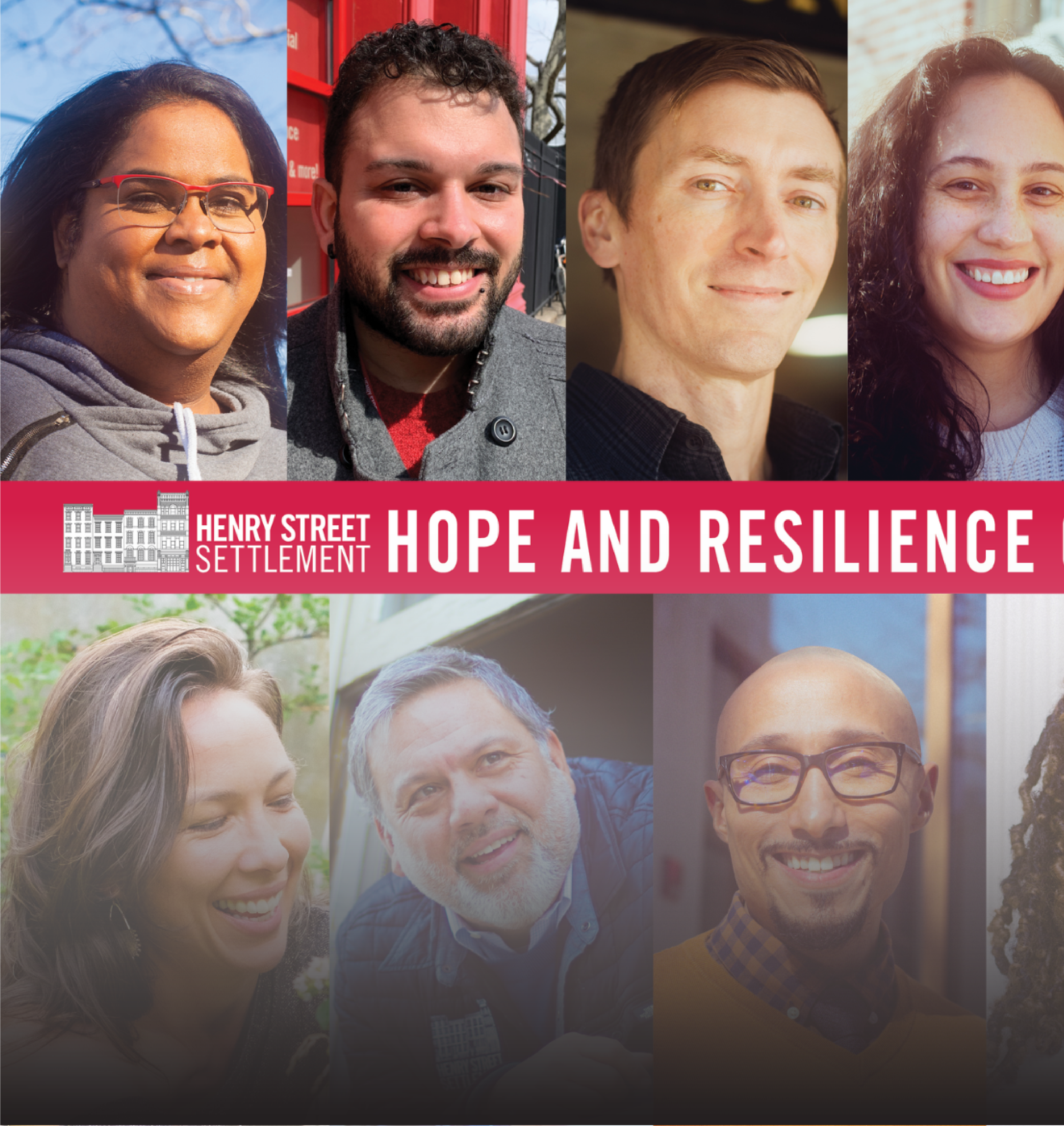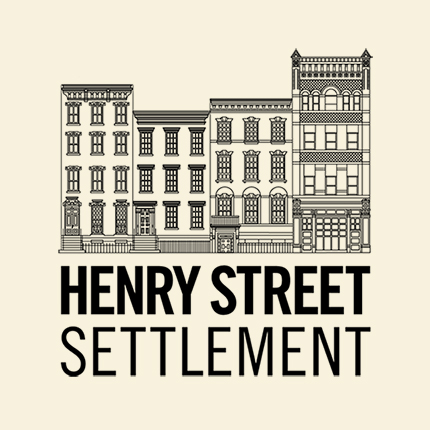Hope & Resilience on the COVID Frontlines – Oral History Project
By Henry Street Settlement

Participants in the oral history project “Hope & Resilience on the COVID Frontlines”
Henry Street Settlement is pleased to launch “Hope & Resilience on the COVID Frontlines,” an oral history project, on our website, henrystreet.org/oralhistory.
The project is the culmination of 30 oral history interviews with Henry Street frontline staff members, program participants, and neighborhood residents, recorded in spring and early summer 2020. During this period, Henry Street underwent a significant pivot, with frontline workers creating new programs practically overnight in response to community needs and steering the organization through an unpredictable time while managing their own fears and losses. Thirteen edited audio clips appear in the exhibit.
“Half of our dedicated team members didn’t have the luxury of staying home”
-David Garza, Henry Street Settlement CEO
By summer 2020, the Settlement had established three food pantries, a helpline, and an emergency cash assistance program while maintaining existing programs and working to keep its team and community safe. Interview subjects describe the imperative to keep moving: delivering meals, transforming an afterschool program to a food-distribution center, and responding to their own fears about their coming to work.
“Half of our dedicated team members didn’t have the luxury of staying home,” says David Garza, Henry Street CEO. “These brave and resourceful staff members took on the responsibility for feeding the families in our homeless shelters so they could stay in place, launching a food pantry with the labor of redeployed arts workers and volunteers, providing emergency resources, and delivering myriad other services to our community.”
Among the speakers are the former head of Henry Street’s Meals on Wheels program, Cindy Singh, who discusses the monumental task of maintaining uninterrupted meal delivery to homebound seniors. Facilities Manager Ramon Vargas addresses the challenges of encouraging his team to come to work while his own family begged him to stay home. Psychotherapist Dan Parker discusses shifting his patients to online therapy from his living room—and plays a song that kept him going on his guitar. Many interview subjects also address the turning point in Black Lives Matter activism amid the June 2020 protests, particularly in the context of racial disparities exacerbated by the pandemic.
The interviews were produced by Julie Beth Napolin, PhD, associate professor in the Eugene Lang College of Liberal Arts at The New School; Sylvie Douglis, producer of the NPR Life Kit podcast; and Katie Vogel, public historian for Henry Street Settlement, who coordinated the project.Many thanks to editor Ben Williams. Additional editing was done by Zoey Greenwald and Vic Walsh, students at Eugene Lang College.
Listen to the oral histories here henrystreet.org/oralhistory.
